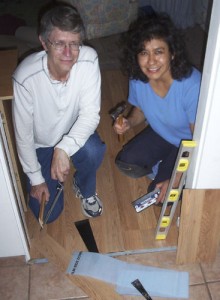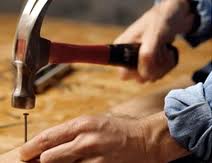I met Tucson attorney John Gravina following a presentation that I gave at the Tucson Festival of Books. We talked about different ways for rental property owners to protect their properties and safeguard their liability.
I asked John if he would write a post for my blog on this topic and he kindly agreed. Below are his insightful comments.
———–
Recently at the Tucson Festival of Books workshop, in addition to self publishing, you mentioned your underlying rental property business. I was more interested in your underlying business since I too have rental properties. I am also an attorney that represents claimants in negligence claims, workers compensation, social security disability, probate and estate matters.
So, I am one of the attorneys that will sue a landlord under premises liability if there is a case. What is frustrating to me is the fear of law suits against landlords that they will lose everything.
I have found at similar seminars (not yours) business consultants coincidentally selling limited liability companies and/or promoting their use as some kind of immunity or shield against law suits.
Protect Assets with Insurance
I advise property investor’s landlords to get insurance. If you have insurance, you really don’t need to worry about lawsuits since the insurance should defend you and indemnify you (pay) for any suit. The best asset protection is purchasing insurance.
Also, premises liability suits are some of the most difficult cases to take. Call around and ask for an attorney on a slip and fall case and you will be surprised by the lack of interest.
My advice to landlord property owners is to have a good insurance broker. Discuss with the insurance broker your specific concerns of a handy man being hurt and/or a tenant suit. It’s important that you are very specific at this meeting. Later if you are sued, you can bring this conversation up for coverage under reasonable expectations.
A landlord should have a business relationship with an insurance broker. All insurance needs such as liability, workers compensation, premises and an umbrella policy should be covered. If the selling agent states coverage is available, this should be confirmed in writing, such as providing a letter itemizing specific coverage.
Reasonable Expectations
Arizona had wonderful insurance law on reasonable expectations. If you go to an insurance broker for a specific example or insurable interest, the broker or insurance company can be bound. Under Arizona Law, reasonable expectations of a contracting party are to be enforced even if the written contract, such as an insurance policy/contract is contrary under the Darner decision/doctrine- 682 P.2nd 388 (Ariz., 1984).
There is a very famous landmark case in Arizona under reasonable expectations and insurance law. An auto broker went to his insurance broker requesting insurance on all of his vehicles. The broker wrote a small policy on one vehicle. The consumer was able to have coverage on all of his vehicles under the reasonable expectations.
It really should go without saying property investors need to be reasonable in their dealings. Underlying most premises liability issues, is notice. So, as a property owner if you are on notice of a dangerous condition, it must be fixed.
Notice of Dangers
The landlord obligation for premises safety may be summed up as Notice. For example, in Siddon’s, a four year old child was injured by a heavy door removed to allow access to the leased premises. The tenant asked the landlord to remove the door.
Another example is Shields, a landlord renting to a tenant repair shop that allowed pit bulls, that the landlord knew were dangerous.
I could go into some other areas such as fraudulent transfers, but that would be well beyond the scope of your inquiry. Perhaps in the future I could address this too for your readers.
John A. Gravina
Attorney at Law
John.Gravina@Azbar.org
http://gravinalaw.com/
520.795.4330











